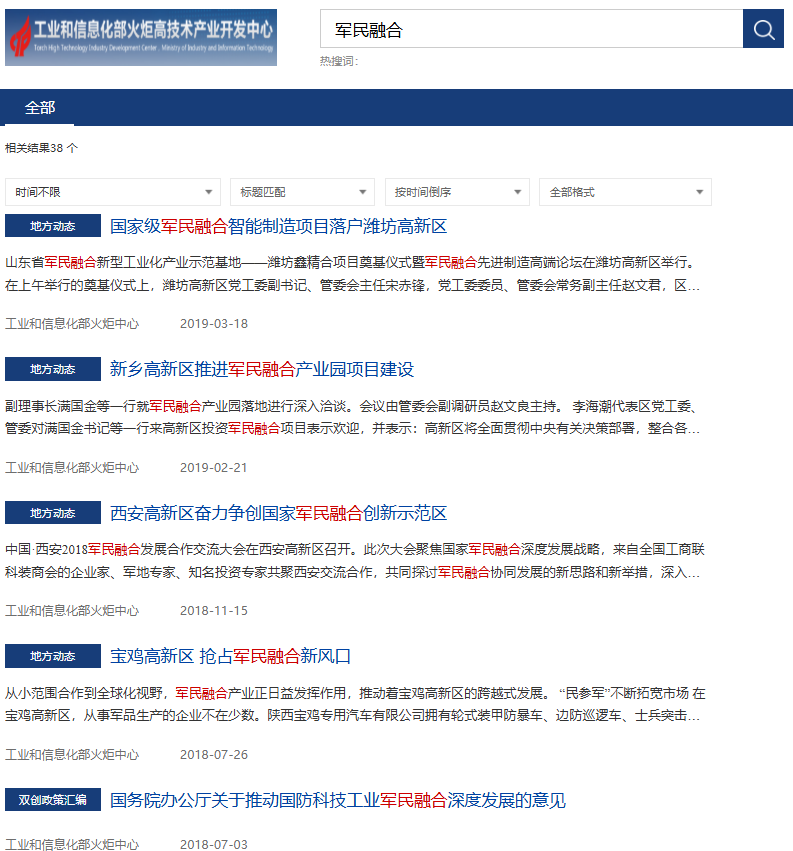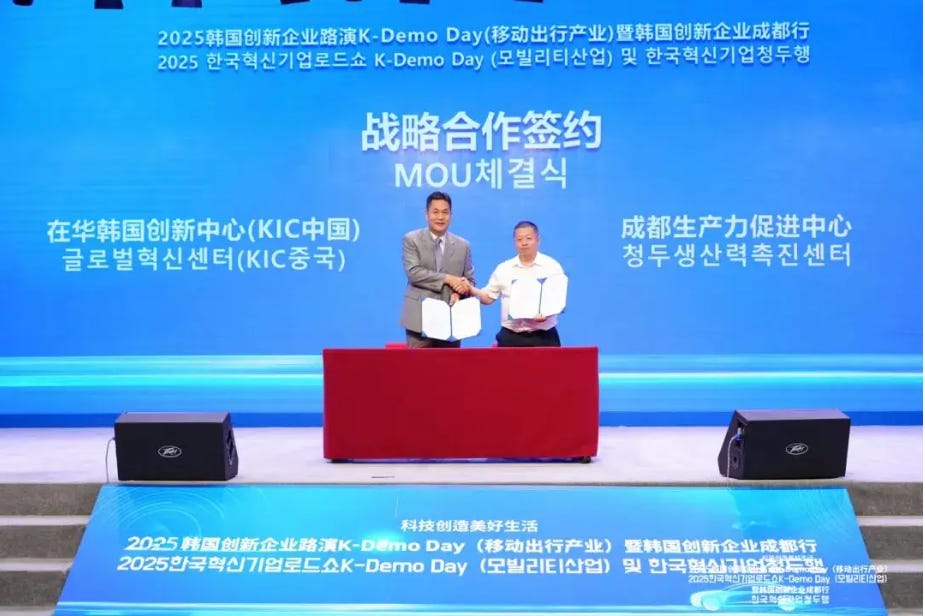The Global Reach of China's Torch Center: From Innovation to Infiltration
...and how the South Korean government is helping them.
Welcome to The Spy Hunter newsletter!
For a limited time, you can access all archived and paywalled articles from The Spy Hunter free for 30 days.
If you want to receive weekly updates on state-sponsored industrial espionage cases, as well as coverage of China’s strategic partnerships, defense research, and ties to Russia, please consider becoming a paid subscriber. Your support helps me keep this newsletter going. Group and institutional rates are also available. Hope you enjoy!
The Global Reach of China's Torch Center: From Innovation to Infiltration
What is the Torch Center?
China’s Torch High Technology Industry Development Center (Torch Center) is the state’s primary organization for turning fundamental research into industry. Founded in 1989, it moved from the Ministry of Science and Technology (MOST) to the Ministry of Industry and Information Technology (MIIT) in 2023, in order to better align with China’s manufacturing and industrialization priorities. Its portfolio covers the evaluation of 178 national high-tech industrial zones, management of technology incubators, talent recruitment initiatives, certification of high-tech enterprises, and the collection of national innovation statistics. In 2024, the industrial zones it oversaw generated 19.3 trillion RMB and hosted one-third of China’s high-tech enterprises and two-thirds of its unicorns.
The Torch Center organizes various events and competitions that bring together academia, business, and government to develop next generation technologies. For example, the Torch Center runs the China Innovation & Entrepreneurship Competition in collaboration with other government organizations, including the sanctioned Xinjiang Production and Construction Corps. Another example is the “Torch Science and Technology Achievement Express” and the “100 Parks • 100 Universities • 10,000 Firms” program, which aims to “achieve seamless connection between the innovation chain and the industrial chain.”
The Torch Center is run by Lu Xianzhi, who serves as Director and Party Secretary. Prior to leading the Torch Center, Lu held several posts in science and technology units, including at the Chinese consulate in Los Angeles, where he worked until 2019. He is listed as one of the leaders of a 2017 symposium on the “Chunhui Project,” a Chinese government initiative to provide one-way airfare for overseas Chinese citizens with a doctorate degree to return to China.
In essence, the Torch Center is China’s innovation-to-industry pipeline. Its data and rankings shape government incentives and policy discussion. By embedding the program inside MIIT, Beijing has tightened the link between R&D, industry, and party priorities. This means that, for foreign companies, engaging with the Torch Center is not just business, it is inseparable from China’s industrial and political objectives.
The Torch Center’s links to high risk actors
The Torch Center’s activities involve a mix of geopolitics, innovation, and military–civil fusion. It has deep ties to high-risk actors and sanctioned entities within the Chinese government that actively threaten the national security of other countries. It is vital for foreign companies to understand these connections and the risks they entail before forming any affiliation with the Torch Center.
First, the Torch Center openly aligns itself with the United Front, China’s network of agencies and individuals who advance China’s influence overseas and which has been tied to a number of illegal activities, including espionage. One clear piece of evidence for this is the “Zhongshan Torch High-tech Industrial Development Zone General Office (United Front Office),” which highlights the inseparability of these two entities and the close coordination on policy objectives. This means that programs promoted by the Torch Center can double as channels for political influence and coercion.
Second, the Torch Center operates much of China’s technology transfer ecosystem, which has been designated as a significant national and economic security threat by the United States. The Torch Center guides the formation and operations of national technology transfer regional centers and talent training bases, and it hosts events like the Global Technology Transfer Conference. These platforms offer opportunities for domestic technology exchange, but they also operate as scouting venues for foreign technologies.
Third and most concerningly, there is substantial evidence that the Torch Center is an active enabler of military-civil fusion operations in China - essentially helping to take civilian technologies and apply them to military purposes. To cite just a few examples, it has organized the “Military-to-Civilian Conversion Competition” which featured critical technologies like LiDAR and rocket engine propulsion. It also organized the 2018 “China Innovation and Entrepreneurship Competition (Xi'an Division)”, with the theme "Integrated Innovation, Strengthening the Military with Science and Technology." Competitions like this are crucial for China’s military to take advantage of the latest research and discoveries in the private sector. Foreign companies with ties to the Torch Center risk having their IP inadvertently compromised through these connections.

Finally, Torch’s incubation network is deeply tied to sanctioned or high-risk entities. In addition to its military ties, the Torch Center also certifies and evaluates incubators at “Seven Sons” defense universities such as the Beijing Institute of Technology, Harbin Engineering University, and Northwestern Polytechnical University, all of which are on U.S. export-control lists.
The KIC-China / Torch Center connection
Despite the overwhelming evidence that the Torch Center openly promotes CCP military and economic objectives and facilitates illicit technology transfers, foreign companies and governments continue to engage with them. In 2021, for example, the UK’s Research and Innovation organization (UKRI) held an “Online Matchmaking Meeting for Technology-Based SMEs in the Precision Medicine Field” with the Torch Center. In Eastern Europe, the Torch-linked China–CEEC Innovation Cooperation Research Center promotes technology transfers with 14 different countries. In strongly pro-China nations such as Hungary, the Torch Center doesn’t obfuscate any involvement and opened the China-Hungary Torch Innovation Center last year.
While the Torch Center is active around the world, few governments so actively promote its operations as South Korea’s. The organization that facilitates this is KIC-China, a group that I have already written about extensively. In just the past few years, KIC-China has deepened its cooperation with the Torch Center and continues to expose Korean companies, many of them tech startups, to the Torch ecosystem.
Here are a few key events from the past two years:
On Jan 11–13, 2023 the Torch Center and KIC-China hosted the Chengdu “Korean Tech Entrepreneurs Tour.”
On September 11, 2023 KIC-China and the Torch Center hosted the “3rd China-Korea Science and Technology Innovation Entrepreneurs Forum.”
On November 9th, 2024 KIC-China and the Torch Center hosted the "4th China-Korea Science and Technology Innovation Entrepreneurs Forum". They signed an memorandum of understanding with the following framework (emphasis added):
Both sides will focus on China–Korea science and technology exchanges and cross-border technology commercialization, establishing a long-term cooperation model, integrating resources from the Chinese and Korean technology industries, and jointly building an innovative ecosystem for the transfer and transformation of technological achievements. This will facilitate Chinese technologies going abroad and Korean technologies entering China.
On November 25-29, 2024, KIC-China hosted a delegation from the Torch Center in South Korea. The group toured some of Korea’s most advanced research institutes and incubators. The head of KIC-China, Kim Jong Moon, described the organization “as a ‘bridgehead’ for the development of South Korean technology innovation companies and startups in China.”
On March 28, 2025, KIC-China and the Torch Center held the China-Korea Science and Technology Innovation Cooperation Forum in Beijing. The forum focused on “integrating cutting-edge technological resources from both countries” under the theme of “Robotics and Artificial Intelligence.”
On June 12, 2025 the Torch Center director appeared at K-Demo Day in Chengdu, co-hosted with KIC-China, where Korean firms in mobility and low-altitude aviation pitched to Chinese investors.

To summarize, the KIC-China/Torch Center relationship has matured over the past two years into a pipeline for Korean startups to enter China’s industrial ecosystem. The Torch Center provides matchmaking opportunities while KIC-China acts as the facilitator. For Korean firms, this opens valuable opportunities to receive funding and enter the Chinese market, but due to Torch’s high risk affiliations, these deals raise clear risks of IP leakage and inadvertent entanglement with military-fusion activities.
Korean companies documented at Torch Center events
Several Korean companies were listed as attending KIC-China/Torch Center events. Below is a selected list.


